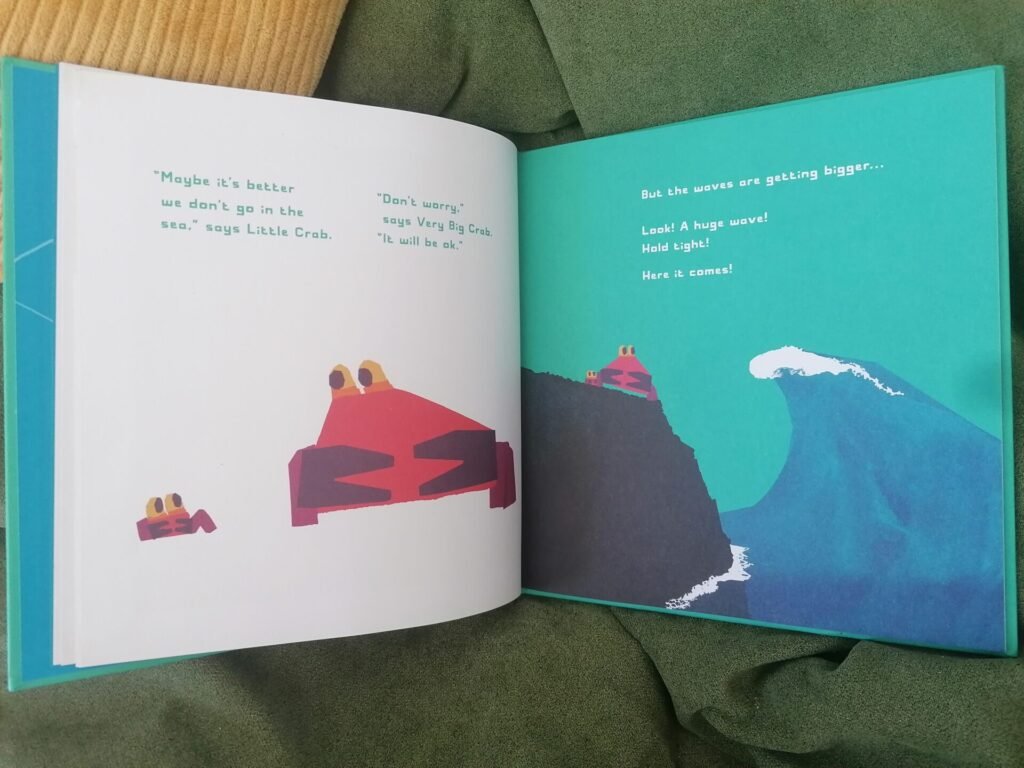What childhood fears are out there, do they pass and how to handle them.
My childhood fears
In my childhood, I had two traumas related to fears and at the same time mistrust. The first one was a purely instinctive fear of swallowing pills, the throat was getting convulsively constricted and that’s it. Mom didn’t believe that I simply couldn’t swallow them and she was getting nervous. I often observe a similar intolerance towards my own child now.
The second story is related to skeletons. Once during a family walk in the forest I saw a skeleton in the bushes and hurried to inform my family about it, but instead of taking my hand, going and looking at whatever that thing was together and talking about it, they asked me not to say nonsense and once again they simply didn’t believe me. So, for me, it’s not so much about fears, as it is about mistrust and undermining of self-confidence. Because when people close to you don’t believe you, then… is there something wrong with you?
What does it feel like for a child who is taught not to trust his fears and not to trust others to share them? Where does the fear itself go? What are fears, what they can develop into and how to work with them – read on.
HOW FEARS ARISE AND WHAT THEY ARE LIKE
It’s known that emotions are needed for better orientation, yes, fear gives us a signal of potential danger. At the same time, we have to deal with those fears so that they allow us to move forward. Because the brain always tries to choose safety and familiarity as this increases the chances of survival.
Fears most often indicate the unknown. Because the height is suspiciously high, and the darkness is completely unknown, the doctor or any unpleasant procedure such as an injection is often pain or discomfort, so you want to run away from them, dogs or insects can behave unpredictably comparing to humans and, unlike humans they may bite, and the greatest fear of all is to remain without support, be abandoned. The most popular fears appear for purely genetic reasons and relate to the surrounding environment, for example, the fear of deep water.
Fears can also appear as a result of an unpleasant experience. That is, fear can manifest itself in different ways and be partly instinctive and partly “learned”, as well as partly real and partly imaginary, when we are afraid of a scenario in our head. It isn’t less weighty nevertheless. Fear, mishandled, can develop into something worse, such as pathological anxiety or depression.
According to Psychology Today, imagined fear is more likely to paralyze us, while real fear compels us to act, so the solution is to face your fear head on. In the case of a child, this most likely requires an adult. And doesn’t necessarily mean pushing into the ocean a child with a phobia of deep water, but a balanced encounter with that water together. Let’s also consider that an adult can not only help overcome fear, but also impose it or “share” his own fear, so our behavior in every situation is always the most effective learning tool. Remember that children learn best by observing us.
DEVELOPMENT OF FEARS IN SMALL CHILDREN
The distinction between emotions such as sadness, anger and fear is formed in children at 4-5 months. At 8-12 months, the child already understands well the meaning of a frightened face and forms reactions such as grabbing parents hand in search of salvation. This is also an age where the fear of strangers is quite popular. From 2-5, a child can manifest many fears, which require the correct reaction from an adult – listening, explaining, covering a negative experience by a positive one, support and love.
Alerts: visual regression in development – the child begins to behave as if he is younger than his age, for example, slurred speech, sucks his finger, bites his nails, urinates at night. In such cases, it’s worth looking for the causes of psychological discomfort. This can happen, for example, when a child adapts to new conditions, like kindergarten.
HOW TO DEAL WITH CHILDREN’S FEARS
- Listen carefully and be close to them
- Take care of safety (hug, cover, take to a safe place)
- Help the child name what is happening, the fear itself and what caused it (to train the child’s ability to do this independently)
- Don’t overreact
- Don’t laugh at a child’s fear, don’t ignore it, don’t devalue it, and don’t deny it
- Courageously face the fear together and examine it closely, if the child is ready for it
- Make fear funny (don’t you think this shadow is a little funny? look how funny it moves when I move; you can play shadow theater; you can draw fear and then do something funny to it)
- Lose fearful situations in games (the most famous example of a game in which the fear of being abandoned is played out is “coo-coo”, which later progresses to a game of “hide and seek”
- We tell stories in which the hero coped with a similar fear
- don’t be afraid to be afraid)
BOOKS THAT WILL HELP A CHILD TO GET COMFY WITH EMOTIONS

- Anna Llenas – The Color Monster
- Susanna Isern – Inspector Croc’s Emotion-O-Meter”



